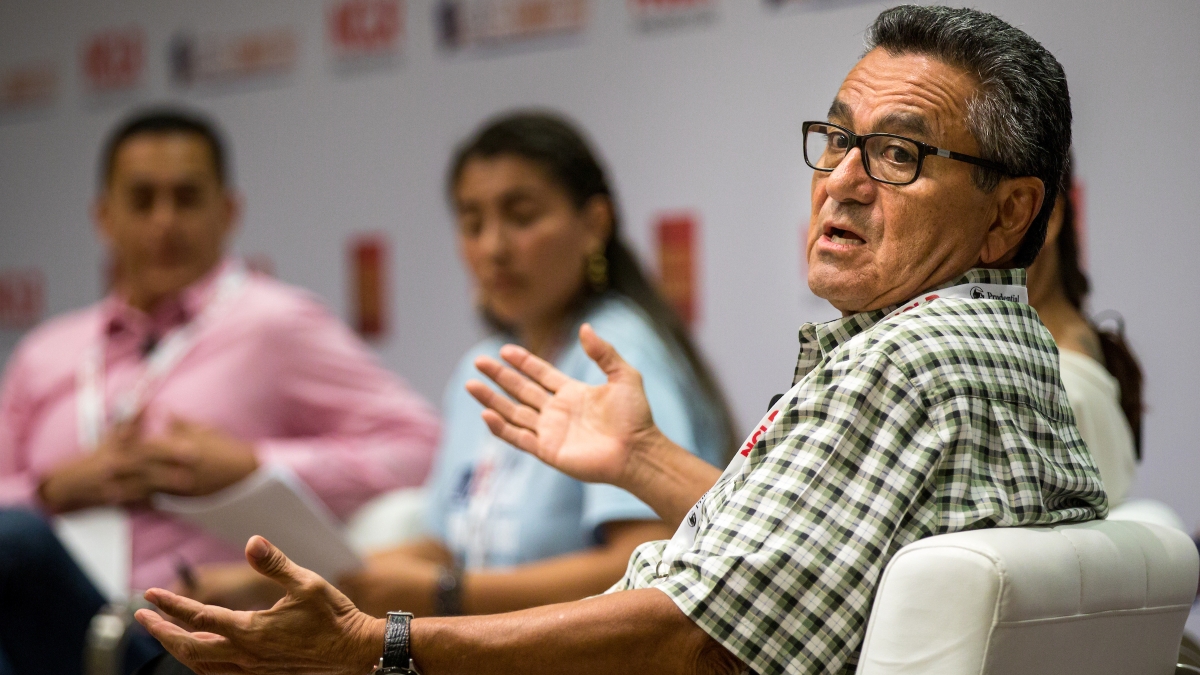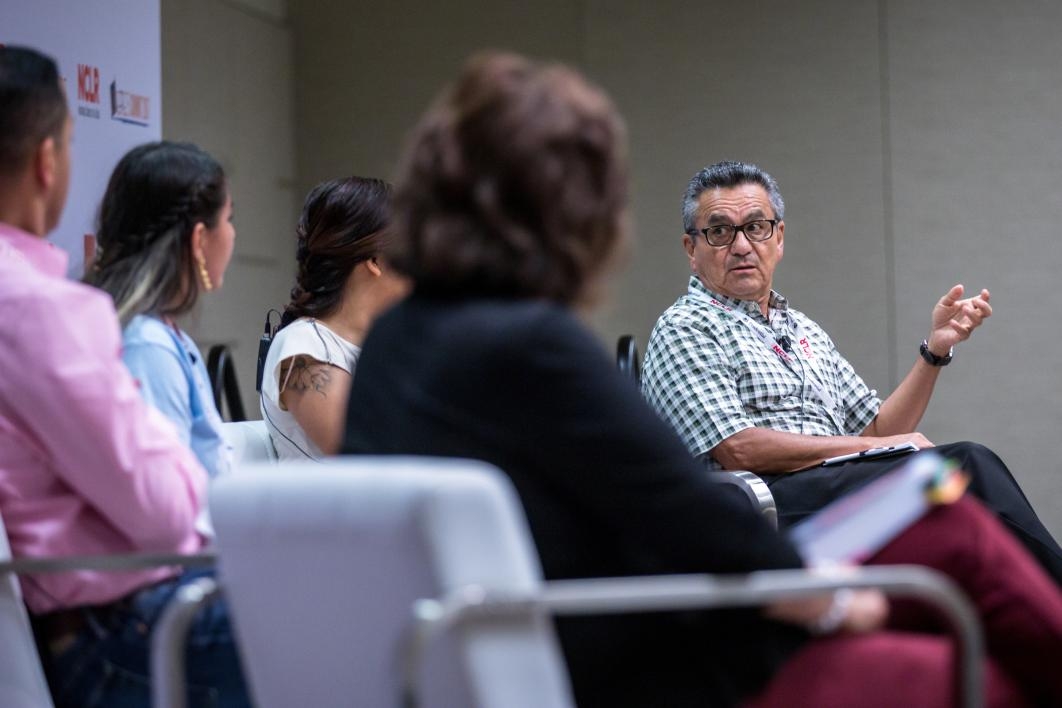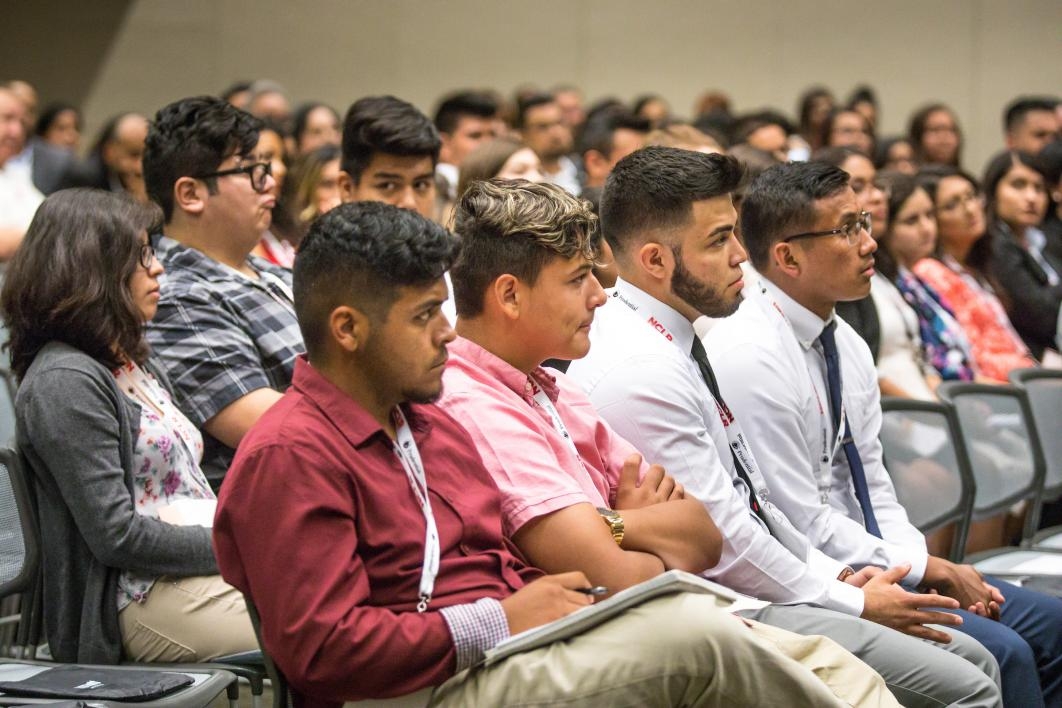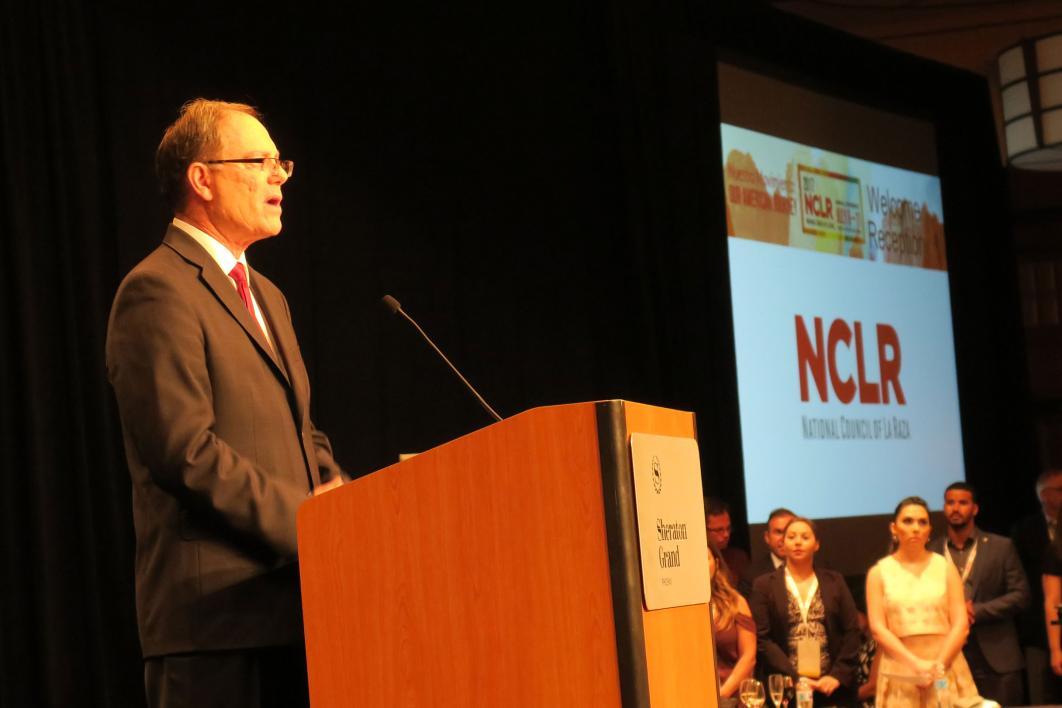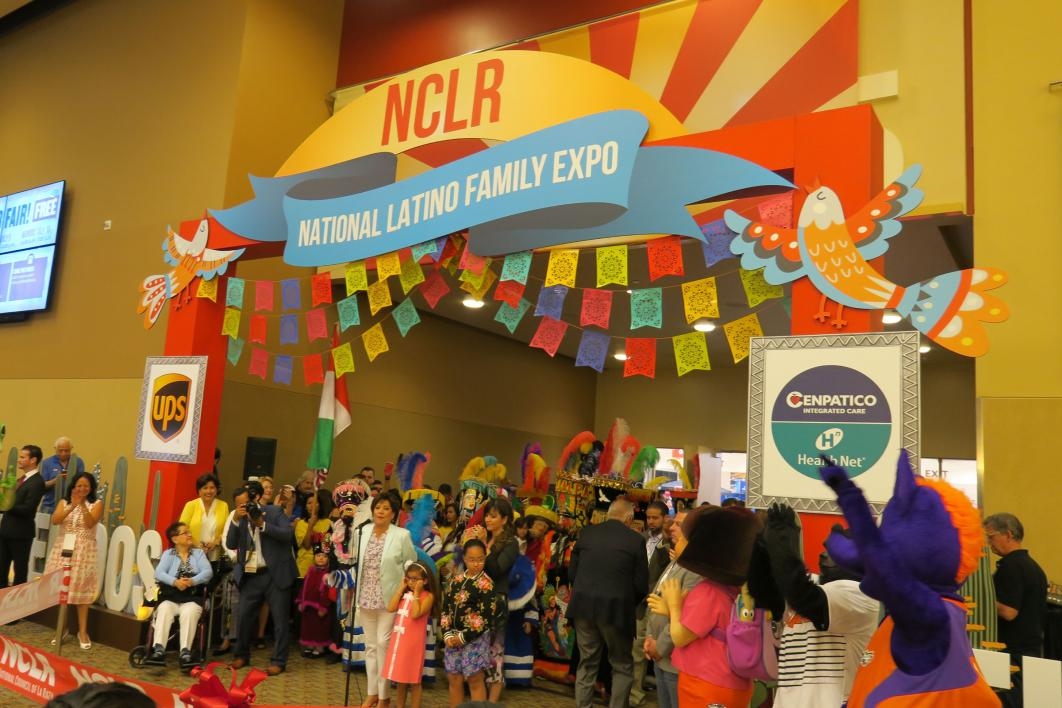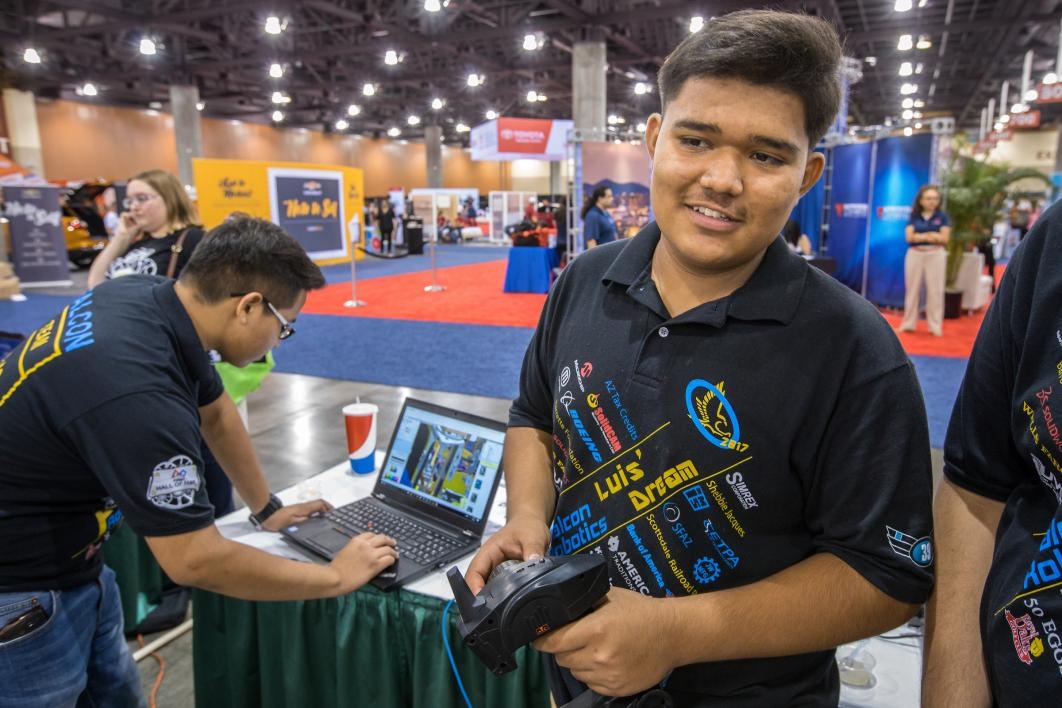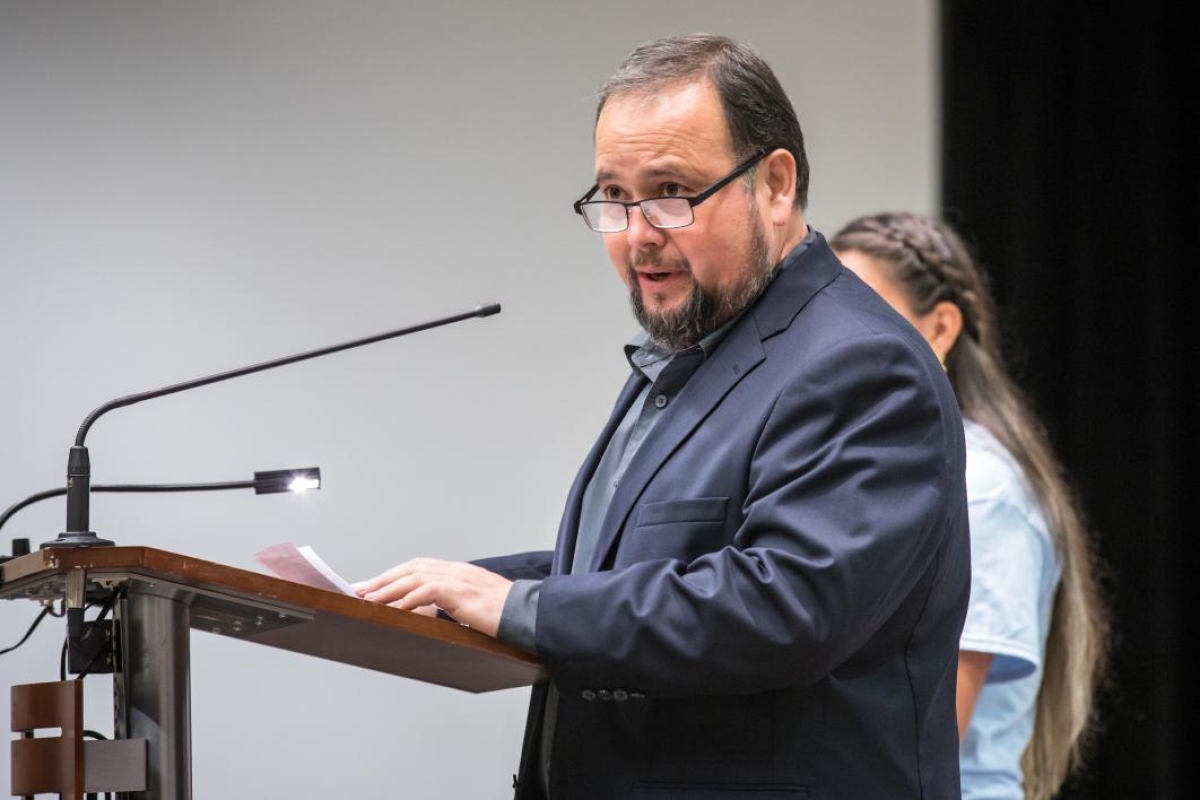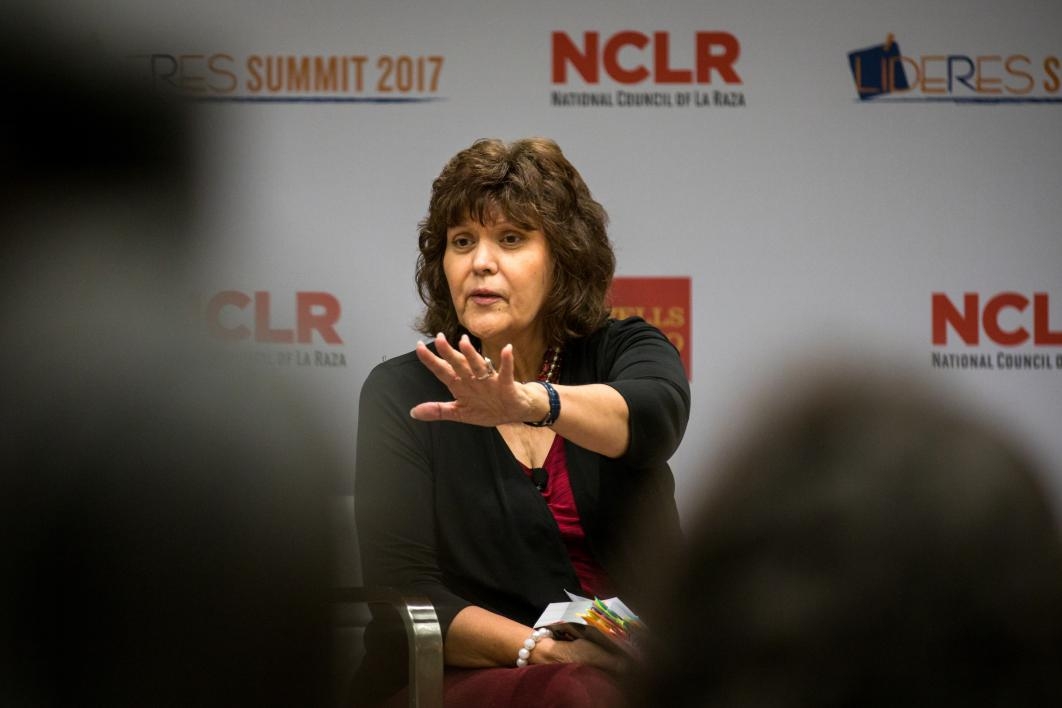Update: The National Council of La Raza on Monday said it will change its name to UnidosUS ("UnitedUS").
Young Latinos need to embrace the history that has been denied to them in order to fight for their civil rights, according to a panel discussion at the National Council of La Raza conference in Phoenix on Saturday.
The panel, “The Making of America: U.S. History Through the Latino Lens,” was part of the “Líderes Summit” section of the conference, for young people. The session was co-sponsored by Arizona State University; the university was also one of the overall conference sponsors.
Two of the panelists, both ASU alumni, told the room full of young people that they didn’t learn the positives of Latino history when they were growing up in Phoenix decades ago.
Daniel Ortega Jr., a Phoenix attorney (pictured above), said he and other Latino children were taught that anyone important was white.
“We were raised to understand that they were smarter, they had more money so they could do whatever they needed to do and they had control of everything,” he said. “There was no sense that we were treated differently. That’s just the way things were.”
Although he got good grades in school, Ortega was told he would take shop classes once he was in high school. But he rebelled because he was ambitious and wanted to go to college. A turning point came when several Latino activists from ASU visited his high school and exhorted the students to demand financial aid, using him as an example.
“ ‘Enough with the burrito sales and car washes,’ they said. And it was about me,” said Ortega, who earned a bachelor’s degree in political science from ASU in 1974. In 1977, he graduated from what was then the ASU College of Law, and in 1984 he became a founding member of Los Diablos, the official Latino chapter of the ASU Alumni Association.
He told the teenagers at the session: “Never forget who helped you and who you will help. My commitment to my community came from that time.”
Stella Pope Duarte, an author and teacher at Phoenix College, said that when she was a child in South Phoenix, there a television show about her neighborhood that called it a “slum.”
“In school they didn’t let us speak Spanish, and I would get demerits. They were shaming us. When you take away someone’s language, you take away their identity,” said Pope Duarte, who earned bachelor’s and master’s degrees from ASU.
Pope Duarte said the exclusion of Latino history is continuing with the banishment of an ethnic studies course in the Tucson Unified School District — a move that is still being litigated.
“They went into the classrooms … and one of the books they pulled out was mine, ‘Let Their Spirits Dance,’ because I talk about our kids serving in Vietnam in much higher numbers than the general population,” she said.
“Our Latino people have always loved this country and been patriotic and been committed to serving.”
Pope Duarte is the author of “Raul H. Yzaguirre: Seated at the Table of Power,” a brand-new biography of the Texas native who, as president and CEO of the National Council of La Raza, built it into the largest Latino advocacy organization in American history.
Pope Duarte told the young people to get out and fight for their rights by organizing.
“Even as a young child, Raul Yzaguirre understood that,” she said. “Leadership is a life choice.”
After working at NCLR for three decades, Yzaguirre came to ASU in 2005 as a professor of practice and founded the Center for Community Development and Civil Rights at the Downtown Phoenix campus. He also launched the American Dream Academy, a program to help low-income families navigate the path to college.
ASU honored Yzaguirre’s work by naming a professorship after him — the Raul Yzaguirre Chair in the School of Politics and Global Studies. The first professor to hold the chair will be Rodney Hero, the former president and first Latino president of the American Political Science Association. He’ll be leaving the University of California, Berkeley, to come to ASU.
Yzaguirre was not able to attend the NCLR convention over the weekend, but Patrick Kenney, dean of ASU’s College of Liberal Arts and Sciences, honored the civil rights leader as he formally announced the creation of the named professorship to the general reception at the convention.
“This chair extends and memorializes the work that Raul has done in his career,” Kenney said.
Kenney then showed a video (available below) about Yzaguirre in which ASU President Michael Crow described the importance of the endowed chair.
“Raul is a designer and architect and driver of change, an initiator of new solutions, working with everyone to design the future. At ASU, that’s what we’re about — designing the future, and improving that design by what we build, not what we talk about.
“So our charter is really driven towards the notion of taking on what we think a public university is supposed to do, what a public university is supposed to be, and that is to drive opportunity forward for all people. Not some people, not a select number of people, not a handful of people. All people.”
Top photo: Phoenix attorney and ASU alumnus Daniel Ortega Jr. speaks during the panel discussion on "The Making of America: U.S. History Through the Latino Lens" on Satureday at the National Council of La Raza converence in Phoenix. Photo by Charlie Leight/ASU Now
More Law, journalism and politics

Veteran journalists Jorge Ramos and Marty Baron talk democracy and free press
Arizona State University hosted "Truth Across Borders," a bilingual panel featuring two of America’s most iconic journalists, last week in the Evelyn Smith Music Theatre on Arizona State University's…
Can elections results be counted quickly yet reliably?
Election results that are released as quickly as the public demands but are reliable enough to earn wide acceptance may not always be possible.At least that's what a bipartisan panel of elections…
Spring break trip to Hawaiʻi provides insight into Indigenous law
A group of Arizona State University law students spent a week in Hawaiʻi for spring break. And while they did take in some of the sites, sounds and tastes of the tropical destination, the trip…


